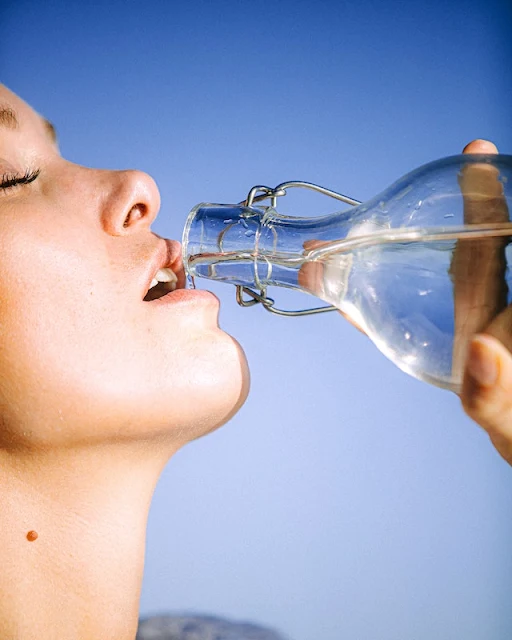How much water should you drink every day?

How much water should you drink every day?

The answer to this seemingly simple question is anything but straightforward.
Studies have produced a variety of recommendations over the years. But your individual water needs depend on a number of factors, including your health, activity level, and where you live.
There's no one-size-fits-all answer. But understanding more about your body's fluid needs can help you assess how much water you need to drink every day.
What are the benefits of water for health?
Water is the main chemical component of your body, making up about 50% to 70% of your body weight. Your body needs water to survive.
Water is essential for the proper functioning of all cells, tissues, and organs in the human body. For example, water helps to:
- The body eliminates waste through urination, sweating, and bowel movements. This process is essential for maintaining good health.
- Maintain your body's normal temperature
- Lubricate joints and cushion organs
- Protect delicate tissues
Water deficiency can lead to dehydration, a condition that occurs when your body doesn't have enough water to perform its normal functions. Even mild dehydration can sap your energy and make you feel tired.
How much water does a person need?
Every day, you lose water through breathing, sweating, urinating, and bowel movements. To help your body function properly, you need to replace this water through drinking fluids and eating foods that contain water.
So, how much water does the average healthy adult who lives in a moderate climate need? The National Academies of Sciences, Engineering, and Medicine in the United States recommends that adults get:
recommend that adults consume about 15.5 cups (3.7 liters) of fluids per day for men and about 11.5 cups (2.7 liters) per day for women.
These recommendations include all fluids, such as water, other beverages, and foods. About 20% of your daily fluid intake typically comes from food and the rest from beverages.
What about the recommendation to drink 8 glasses of water a day?
The 8 glasses of water a day recommendation is a popular one, but it's important to remember that everyone's needs are different. It's a reasonable goal and easy to remember.
Most healthy people can maintain their hydration by drinking water and other fluids whenever they feel thirsty. And less than eight glasses a day may also be fine for some people. But others may need to drink more.
You may need to adjust your total fluid intake based on a number of factors, including:
- Exercise. If you engage in activities that cause sweating, you'll need to drink more water to replace the lost fluids.Hydration is essential for optimal performance and recovery during exercise.
- Environment. Hot or humid weather can cause sweating, which requires drinking extra fluids. Dehydration is a common risk at high altitudes, as the air is thinner and contains less water.
- Overall health. You lose fluids when you have a fever, vomit, or have diarrhea. Drink more water or follow your doctor's advice to drink rehydration solutions. Other conditions that may require increasing your fluid intake include bladder infections and kidney stones.
- Pregnancy and breastfeeding. Pregnant and breastfeeding women need to drink more fluids to maintain their hydration levels.

What are the benefits of water

Is water the only option for hydration?
No. You don't have to rely on water alone to meet your body's fluid needs. The food you consume also provides a significant amount. For example, many fruits and vegetables, such as watermelon and spinach, are about 100% water.
Drinks like milk, juice, and herbal teas are also primarily water. Even caffeine-containing drinks, such as coffee and soda, can contribute to your daily water intake. But try to be moderate in your intake of sugary drinks. Regular soda, energy drinks, sports drinks, and other sugary drinks often contain a lot of added sugar, which can add calories that you don't need.
How do I know if I'm drinking enough fluids?
You're likely drinking enough fluids if:
- You rarely feel thirsty
- Your urine is colorless or light yellow
Your doctor or registered dietitian can help you determine how much water is right for you each day.
To prevent dehydration and ensure your body has the fluids it needs, make water your go-to beverage. It's a good idea to drink a glass of water at the following times:
- With every meal and between meals
- Before and after exercise
- When you feel thirsty
Do I need to worry about drinking too much water?
It's rare for adults who are healthy and well-nourished to have a problem from drinking too much water. Sometimes athletes drink large amounts
Image from [playgroundai.com] and [pexels.com].
